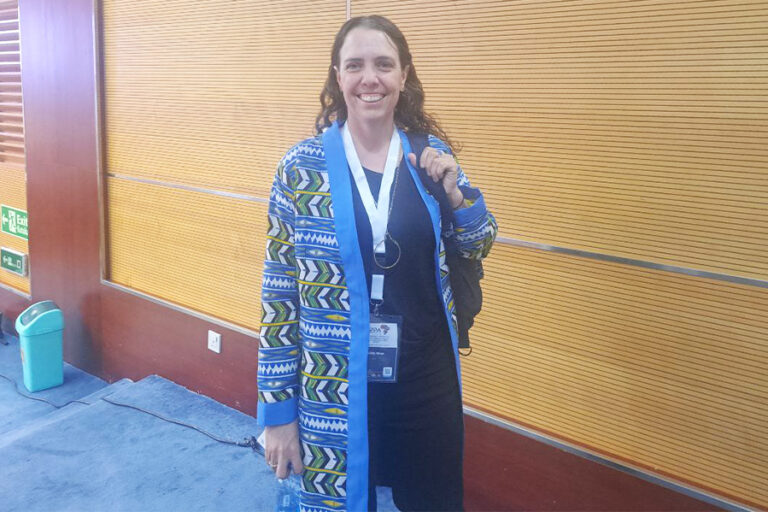The Congolese government has lauded the African Development Bank Group for its vital support to the nation’s development, particularly in infrastructure, where the Bank stands as the country’s key partner.
Government representatives gave the commendation during a three-day visit by the African Development Bank Group’s Vice-President for Regional Development, Integration and Business Delivery, Marie-Laure Akin-Olugbade, during which she engaged with several ministers on political dialogue and support for the Bank’s operations.
Jean-Jacques Bouya, Congo’s Minister of State for Regional Development, Infrastructure and Road Maintenance lauded the “very positive cooperation with the African Development Bank in the infrastructure field” and expressed eagerness to expand this partnership, highlighting the Bank’s comparative advantage in funding infrastructure across the continent.
The Bank Group has significantly contributed to Congo’s infrastructure development, including the construction of the Ketta-Djoum road, part of the Yaoundé-Brazzaville corridor, and the first section of the Ndende-Dolisie road linking Congo to Gabon. The Bank also funded fiber-optic networks connecting Congo to Cameroon and the Central African Republic and is financing studies for a road-rail bridge between the two Congos. Alongside Africa50, the Bank is leading efforts in resource mobilization for these projects.
Minister Bouya presented Akin-Olugbade with studies of various road projects funded by the Bank and sought support for hydroelectric dam studies on the River Congo. The Bank committed to reviewing the request to help address Congo’s energy deficit, which is hampering economic and social development. Bouya also indicated that Congo plans to present some bankable projects at the African Investment Forum, 2024 Market Days scheduled to take place in Rabat in December.
Olga Ghislaine Ebouka-Babackas, Minister of Planning, Statistics and Regional Integration, emphasized the need for capacity building to optimize development assistance. She noted the need for the Bank’s support to ensure that management units and sector-specific ministries are adept at navigating financial procedures required by international partners.
Minister of Agriculture, Livestock Farming and Fisheries, Paul Valentin Ngobo, and Akin-Olugbade discussed a mid-term evaluation of the Integrated Agricultural Value Chains Development Project (PRODIVAC). This initiative aims to bolster the maize/cassava sectors and enhance seed production capacities. Ngobo also outlined the Agenda for Agricultural Transformation in Congo (ATAC), a government program to advance the agricultural sector.
Minister for the Environment, Sustainable Development and the Congo Basin, Alerte Soudan-Nonault, highlighted the challenges in mobilizing climate finance and advocated for Congo’s access to all Bank funding mechanisms. Akin-Olugbade mentioned the Bank’s technical support for the ‘Congo Basin Blue Fund’s readiness project and ongoing efforts to create a carbon exchange and incorporate natural resources into GDP calculations for African countries.
Jean-Baptiste Ondaye, Minister of Economy and Finance acknowledged the Bank’s support in Congo’s reforms program with the International Monetary Fund. At the end of 2023, the Bank provided Congo with $92 million in budget support, helping the country address urgent challenges. Ondaye assured that Congo would meet its commitments to the African Development Bank and other partners.
Akin-Olugbade outlined the Bank’s new Ten-Year Strategy (2024-2033), focusing on accelerating the “High 5” strategic priorities, aligning with the Sustainable Development Goals (SDGs) and the African Union’s Agenda 2063, against the background of reforming the international financial architecture. The strategy emphasizes gender equality, youth support, and climate change, particularly mobilizing climate funding.
Discussions included the possibility of opening a Country Office in Congo and the government’s preparations to host the Bank Group’s Annual Meetings in 2026. The upcoming resource replenishment meeting of the African Development Fund, the concessional funding window for low-income African countries, was also highlighted.
Akin-Olugbade introduced Olivier Béguy as the new resident country economist, succeeding Sié Antoine-Marie Tioyé, whose mission had ended.
The Vice-President’s delegation included the Bank’s Director General for Central Africa, Serge N’Guessan, his deputy Solomane Koné, who is also the Country Manager for Congo, outgoing resident country economist Tioyé, Regional Lead economist Hervé Lohoues, and Principal Country Program Officer, Mohamed Coulibaly.
Distributed by APO Group on behalf of African Development Bank Group (AfDB).
Media contact:
Romaric Ollo Hien,
Communications and External Relations Department,
media@afdb.org
About the African Development Bank Group:
The African Development Bank Group (AfDB) is the premier multilateral financing institution dedicated to Africa’s development. It comprises three distinct entities: the African Development Bank (AfDB), the African Development Fund (ADF) and the Nigeria Trust Fund (NSF). The AfDB has a field presence in 41 African countries, with an external office in Japan, and contributes to the economic development and social progress of its 54 regional member states.




